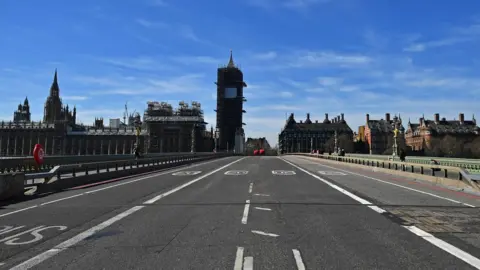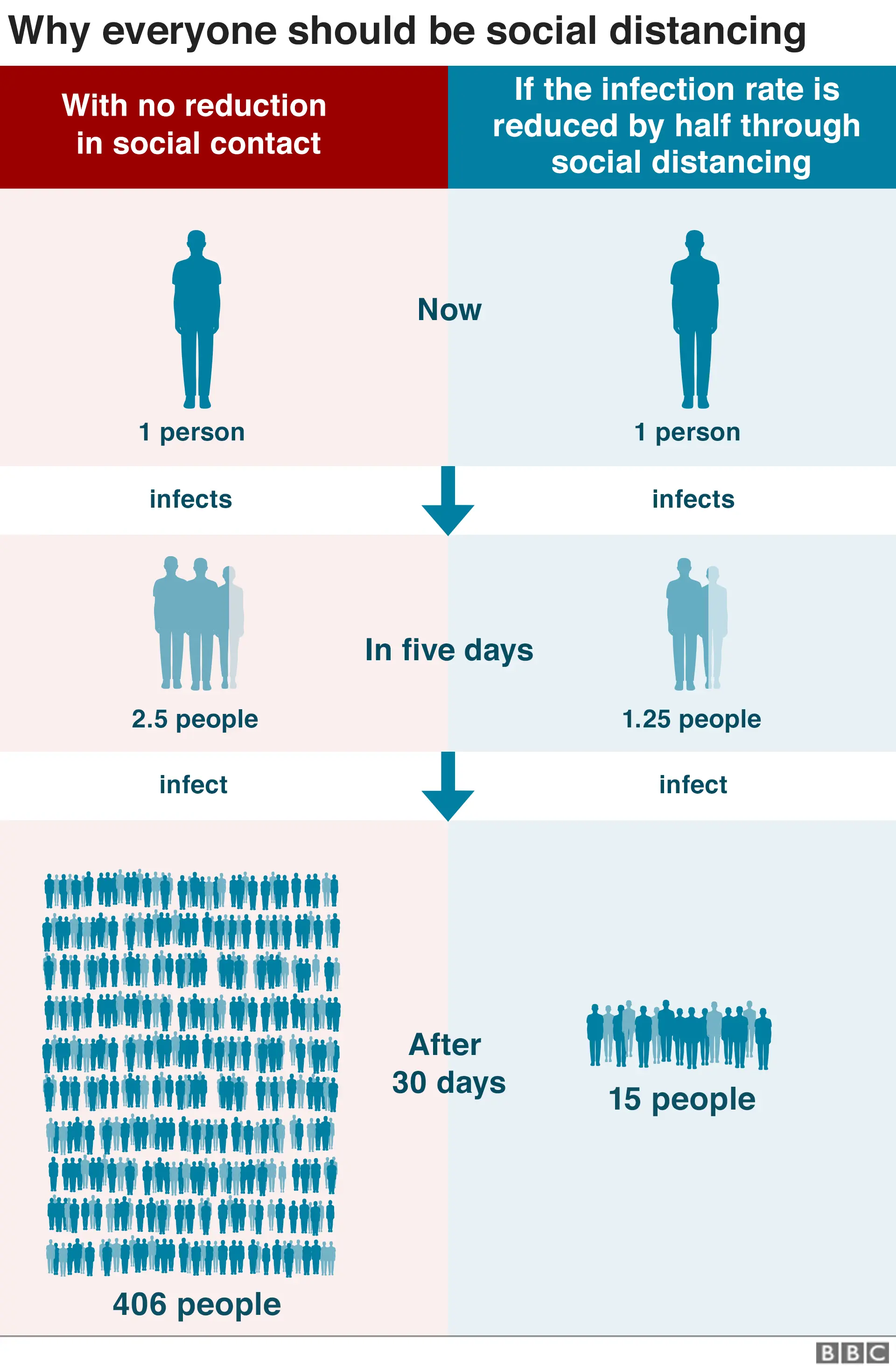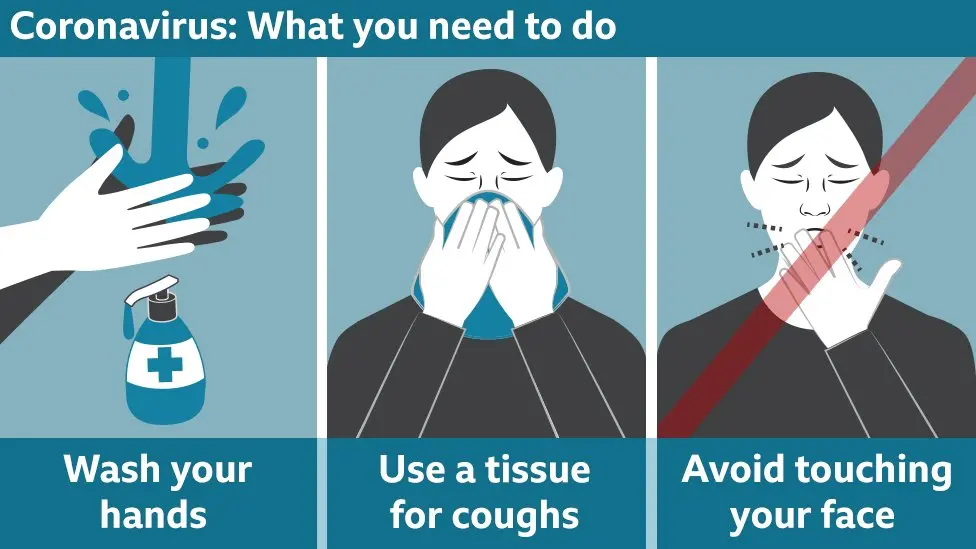Coronavirus: What are the current restrictions and why are they needed?
 AFP
AFPA series of strict measures to fight the coronavirus outbreak has been introduced by the government.
They are aimed at stopping the spread of infection by making people stay at home unless absolutely necessary.
When are people allowed to leave their homes?
Under the new regulations nobody may leave their homes "without reasonable excuse".
Reasonable excuses include:
- Shopping for basic necessities such as food or medicine
- To take exercise (the guidelines suggest once a day, and in Wales that is the law)
- Seeking medical assistance, or to avoid injury or illness or to escape a risk of harm
- Providing care or assistance to a vulnerable person, providing emergency assistance, or donating blood
- Travelling to work or to carry out voluntary services, where it's not possible to do these from home
- Attending the funeral of a member of your household, or a close family member (or in some circumstances, a friend)
- Fulfilling legal obligations, such as attending court, satisfying bail requirements or participating in legal proceedings
- Accessing critical public services including childcare or education, social services, or victim support
- Allowing children of separated parents to move between both households
- Moving house where reasonably necessary
Religious ministers are also allowed to visit their place of worship.
When outside your home, you should keep a safe distance of 2m or more from anyone who is not a member of your household.

What's been closed under the restrictions?
Many businesses and venues have been ordered to close. These include:
- Pubs, cafes and restaurants - although food delivery and takeaway are still permitted
- Cinemas and theatres, libraries, community centres, youth centres, and places of worship
- All shops selling "non-essential" goods - this includes clothing and electronics stores, and hair, beauty and nail salons
- Indoor and outdoor leisure facilities such as bowling alleys, arcades and soft play facilities
- Communal places within parks, such as playgrounds, sports courts and outdoor gyms
- Hotels, hostels, bed-and-breakfasts, campsites and caravan parks (excluding those providing accommodation for key workers, permanent residents and the homeless)
Shops that remain open include supermarkets, pharmacies, petrol stations and post offices. A full list can be found here.
Tradespeople can still carry out repair and maintenance work in people's homes as long as they are well and have no symptoms, and keep 2m away from people in the household.
However, in households where people are self-isolating, or where a vulnerable individual is being shielded, no work should be carried out except emergency repairs to remedy a direct safety risk to the household.
What other measures are being taken?
All gatherings of more than two people have been banned by the government. The only exceptions are:
- Where the gathering is of a group of people who live together - for example, a parent can take their children to the shops if they can't be left at home alone
- Where the gathering is essential for work purposes - although workers should try to keep all meetings to a minimum
In addition, the government has stopped weddings, baptisms and other religious ceremonies, apart from funerals.
The restrictions were announced on 23 March by Prime Minister Boris Johnson, with the plan to review them after three weeks.

How will the measures be enforced?
The police have been given powers to make sure people follow the measures.
If you leave your home or gather in public for any reason other than those allowed, the police may instruct you to go home or disperse. They may also instruct you to stop your children from also breaking the rules. They also have the power to take you home or arrest you.
If the police believe you have broken rules, or if you refuse to follow their instructions, they may issue you with a fine of £60 (reduced to £30 if paid within 14 days). If it's the second time you've received a fine, the amount will increase to £120 and double on each further repeat offence.
The guidance says that "the police will act with discretion and common sense in applying these measures".
Local authorities (such as trading standards officers) will be monitoring local businesses to make sure they also follow the rules. Those that don't comply will face the threat of fines, and of being closed down.

- A SIMPLE GUIDE: What are the symptoms?
- NEW GUIDANCE: What must I do?
- NEW RESTRICTIONS: What are they?
- LOOK-UP TOOL: Check cases in your area
- MAPS AND CHARTS: Visual guide to the outbreak

Why do people need to stay apart?
Coronavirus spreads when an infected person coughs small droplets into the air. These can be breathed in, or cause an infection if you touch a surface they have landed on, and then touch your face with unwashed hands.

